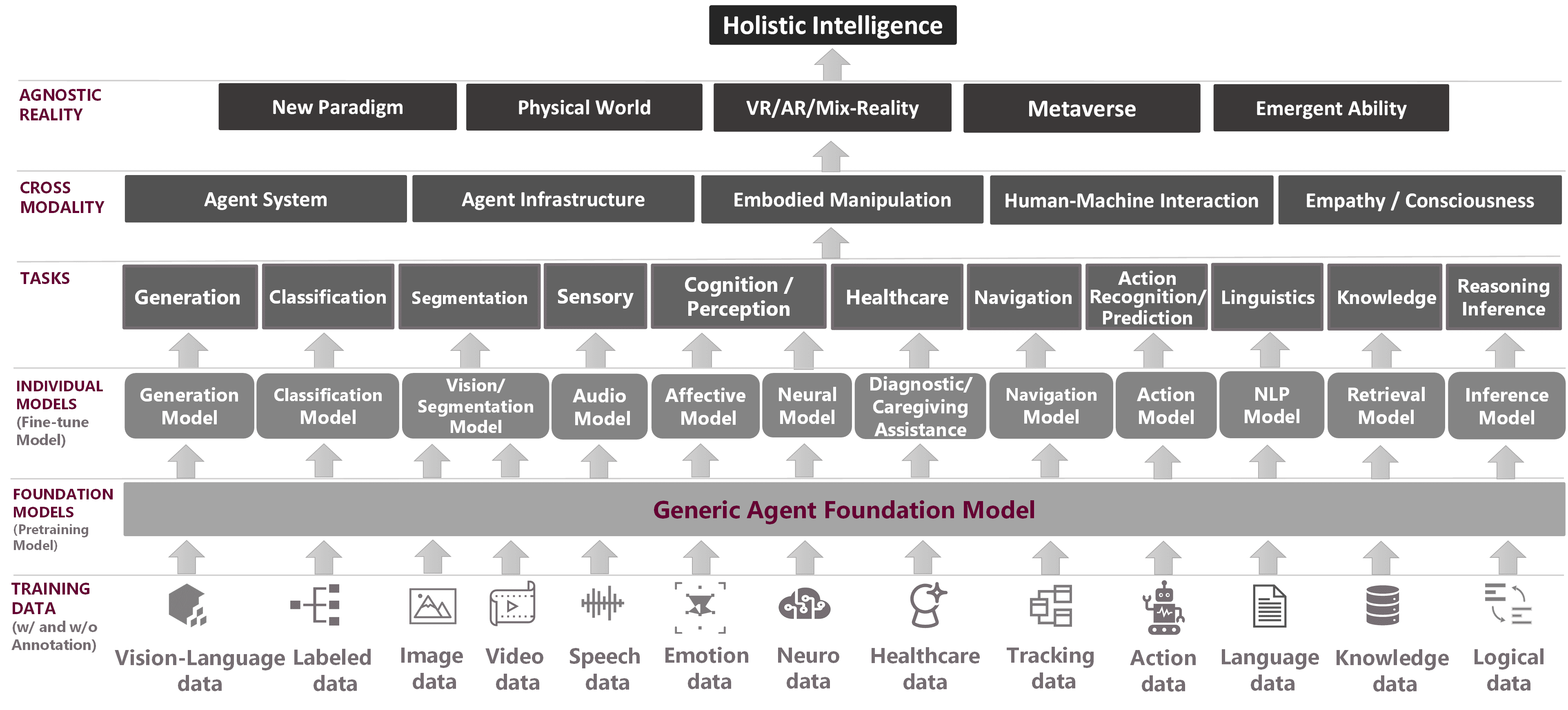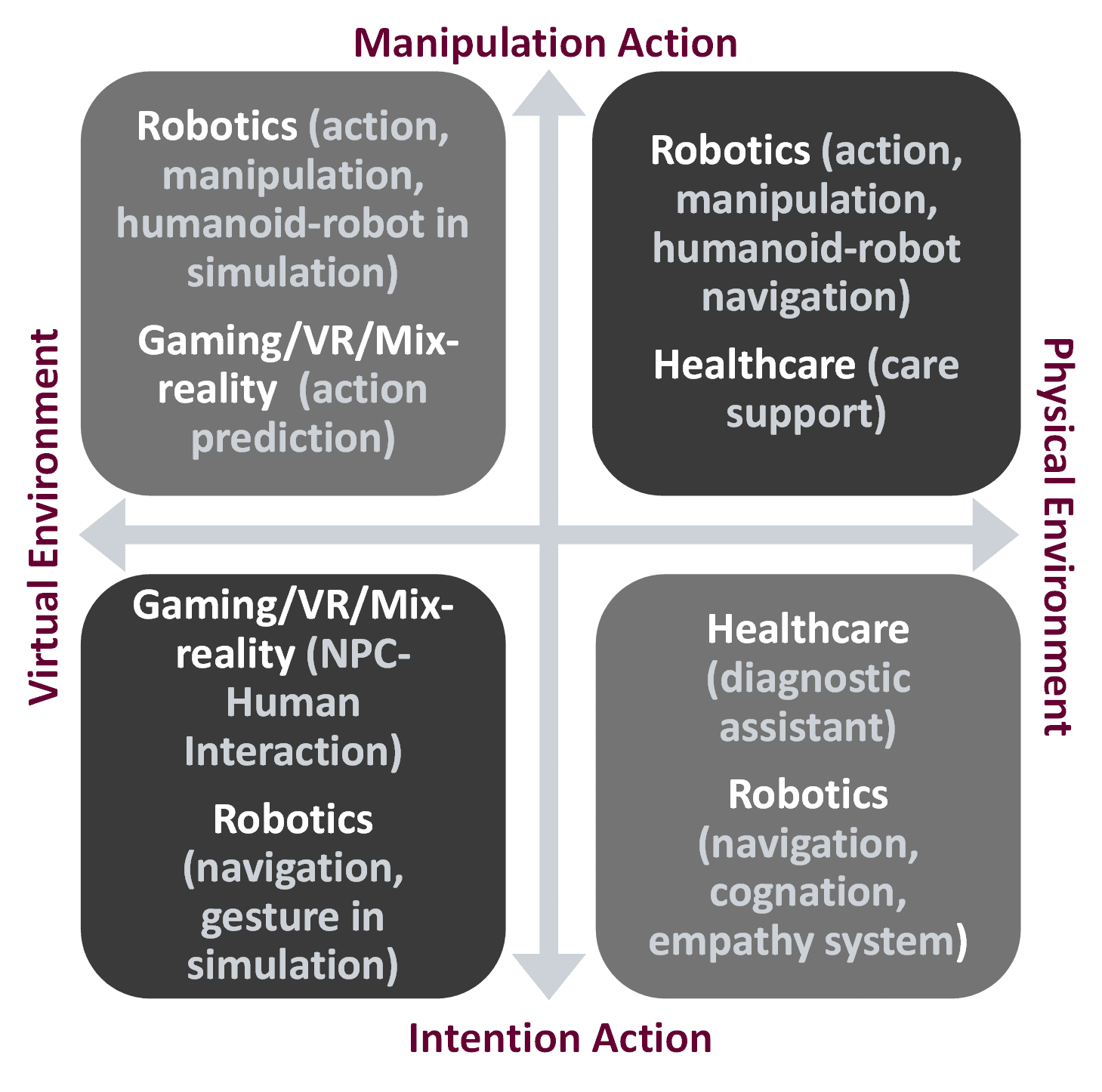AI, the intelligent body leading to total intelligence
Title: Agent AI Towards a Holistic Intelligence
Authors: Qiuyuan Huang, Naoki Wake, Bidipta Sarkar, Zane Durante, Ran Gong, Rohan Taori, Yusuke Noda, Demetri Terzopoulos, Noboru Kuno, Ade Famoti, Ashley Llorens, John Langford, Hoi Vo, Li Fei-Fei, Katsu Ikeuchi, Jianfeng Gao Llorens, John Langford, Hoi Vo, Li Fei-Fei, Katsu Ikeuchi, Jianfeng Gao
Source:arXiv:2403.00833v1 [cs.AI]

Synopsis:
This article explores the concept of Agent AI, an intelligent agent system that integrates a large-scale foundation model capable of performing tasks through interactive actions and embodied behaviors in both physical and virtual worlds. The article emphasizes the importance of moving away from oversimplificationism to a system that emphasizes holistic functionality and proposes the Agent Foundation Model (AFM), a new type of large-scale action model designed to enable embodied intelligent behavior. The article also discusses the remarkable capabilities that Agent AI has demonstrated across multiple domains and tasks, as well as examining the potential of Agent AI from an interdisciplinary perspective, including AI cognition and consciousness. Finally, the article suggests future research directions, including ethical challenges that need to be addressed.
Core Points:
Key point 1: The proposal of Agent AI
- Agent AI is an embodied system that integrates large-scale base models into agent behavior across a variety of domains, including robotics, gaming, and healthcare.
- The Agent Foundation Model (AFM) is the first foundation model for developing general-purpose AI agents that are pre-trained with embodied data collected from robotics, gaming, and healthcare tasks.
Point 2: Basic Components of Agent AI
- Agent AI is defined as an intelligent agent capable of autonomously performing appropriate and contextually relevant actions based on sensory input.
- It includes the key modules of learning, memory, action, perception, planning, and cognition, emphasizing the importance of integration between these components for the development of a well-rounded intelligence.

Point 3: Agent AI awareness
- Agent AI may contain a "consciousness" based on neuroscientific insights that use agency and embodiment as indicators of consciousness.
- Satisfying embodied principles by anticipating verbal-based instructions, sensory inputs, and action histories for goal-directed action, and learning from the relationship of actions to environmental outcomes.
Key Point 4: Application Areas for Agent AI
- Agent AI is having a major impact in robotics, gaming, healthcare and multimodal tasks, delivering more immersive gaming experiences, revolutionizing industries, increasing the accuracy of medical diagnostics and improving patient care.

Key Point 5: Challenges for Agent AI
- Despite the growing adoption of Agent AI in interactive agent AI systems, generalization performance in unseen environments or scenarios remains challenging.
- An emergency mechanism called "Mixed Reality and Knowledge Reasoning Interaction" is proposed to facilitate cooperation with humans in solving challenging tasks in complex real-world environments.
Resources:
1. Microsoft Research Core, Redmond
2. Microsoft Applied Robotics Research, Redmond
3. Stanford University
4. University of California, Los Angeles
5. MSR AI Frontiers, Newyork
Recommendations for next steps:
1. In-depth study of Agent Foundation Model (AFM) and exploration of its application potential and effectiveness in different fields.
2. Focus on the ethical and social responsibility aspects of Agent AI to ensure that the development of the technology is in line with ethical standards and laws and regulations.
3. Promote interdisciplinary collaboration, combining knowledge from neuroscience, biology, physics, and other fields to advance Agent AI's cognitive and consciousness research.
© Copyright notes
Article copyright AI Sharing Circle All, please do not reproduce without permission.
Related posts

No comments...


